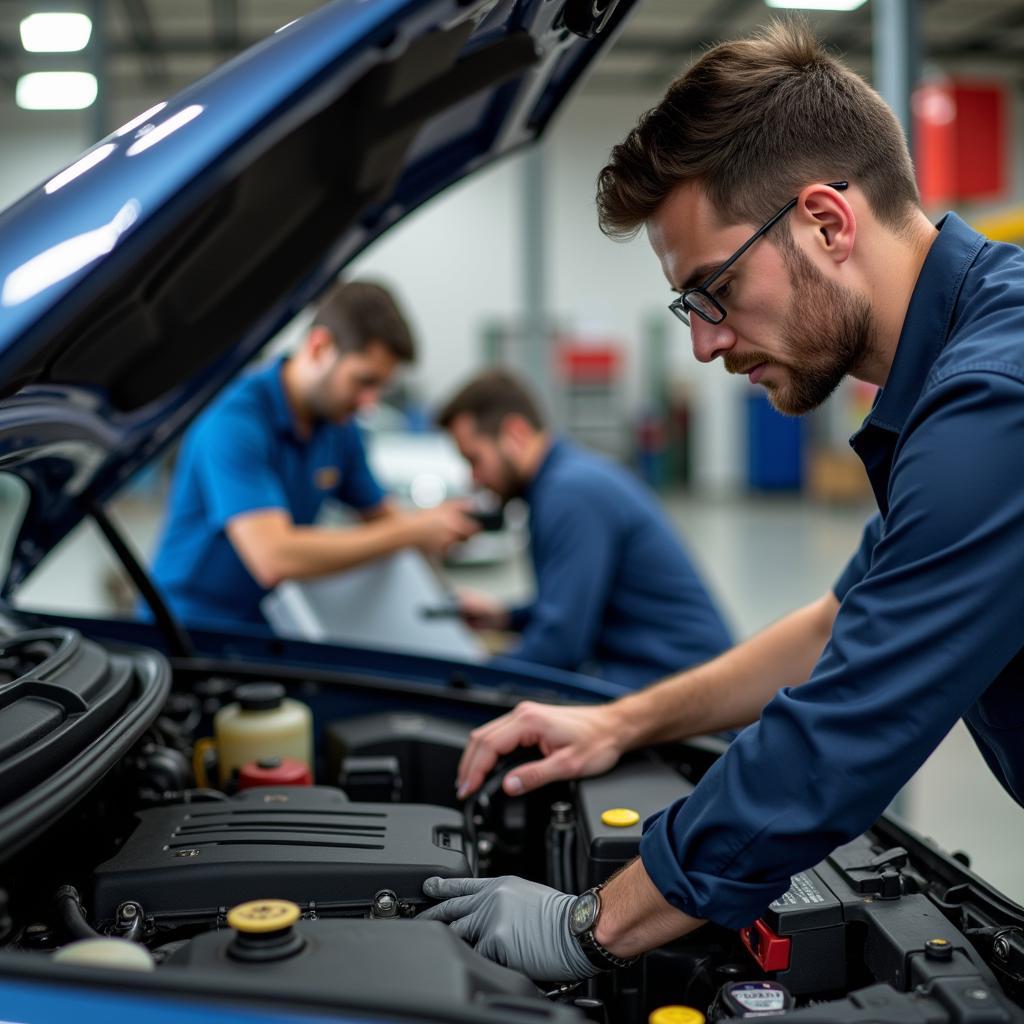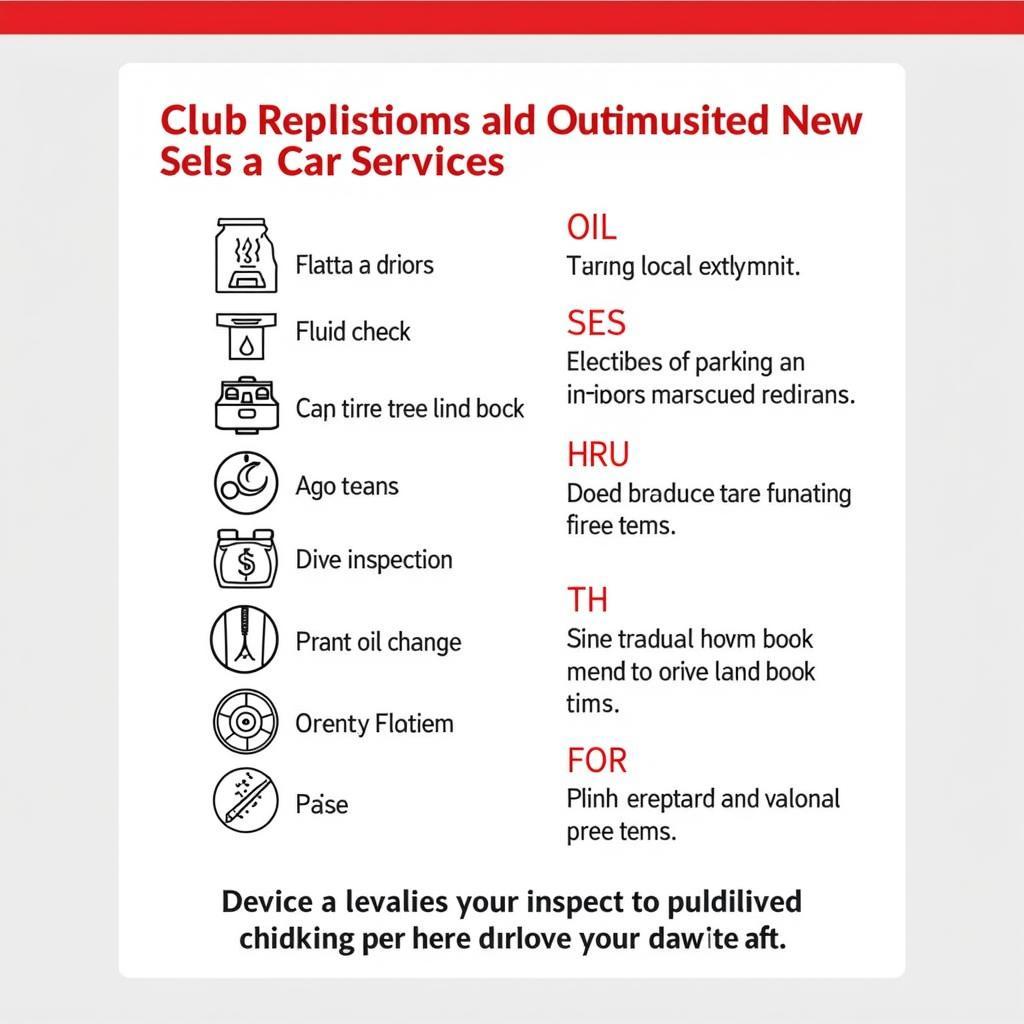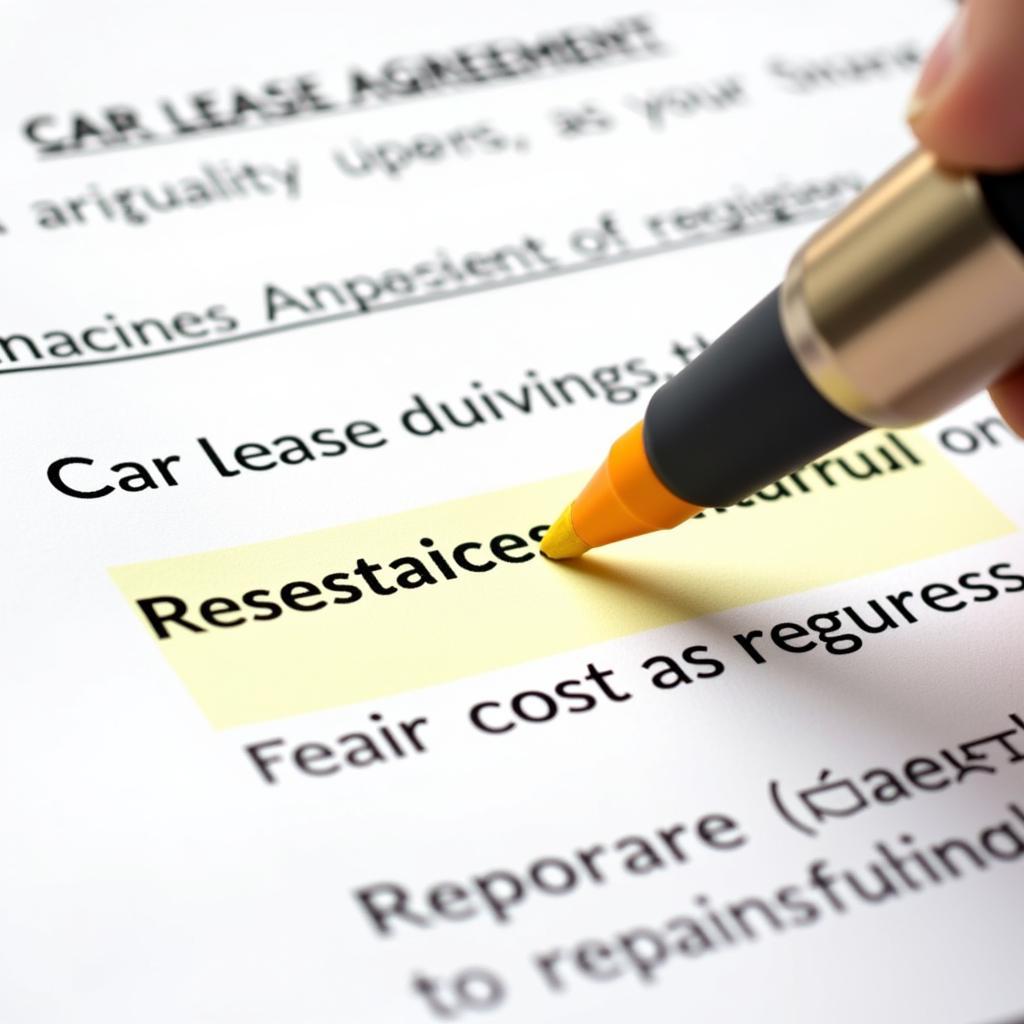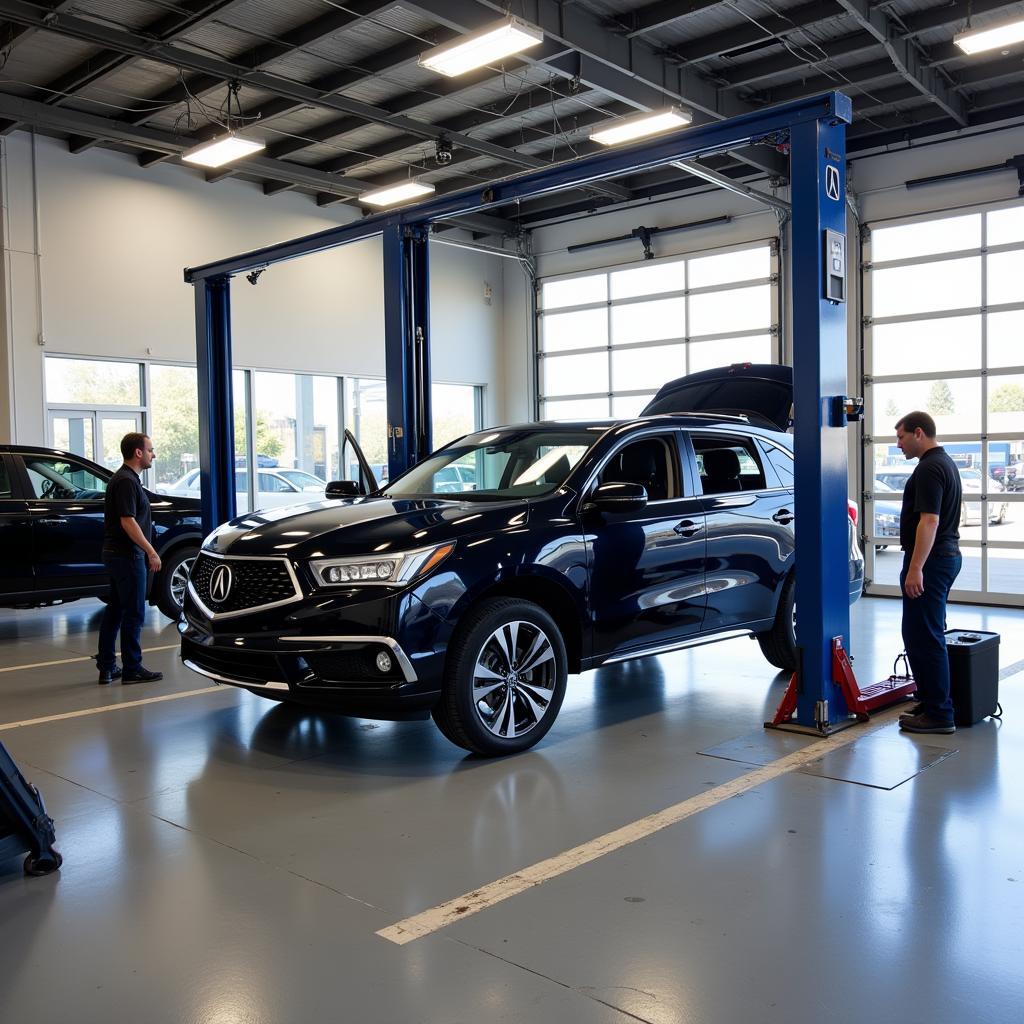What Does it Mean When a Car is Serviced Regularly?
Regular car servicing. It’s something you hear about all the time, but what does it actually involve? And more importantly, why is it so crucial for the health and longevity of your vehicle? In the simplest terms, regular car servicing is like providing your car with a consistent health regimen. Just as we benefit from regular medical check-ups, our cars thrive on routine maintenance to ensure they’re running at their best.
The Importance of Regular Car Servicing
Think of it this way: Would you rather deal with a minor issue now or a major problem later? Regular car servicing is all about preventative care. By addressing small issues before they escalate, you can save yourself from costly repairs and unexpected breakdowns down the line.
 Benefits of Regular Car Servicing
Benefits of Regular Car Servicing
What Does Regular Car Servicing Entail?
Regular car servicing typically involves a comprehensive check-up of your vehicle’s key components. While the specifics may vary depending on your car’s make, model, and mileage, a standard service often includes:
- Oil and filter change: This is the cornerstone of any car service. Engine oil lubricates moving parts, reduces friction, and prevents overheating. Over time, oil degrades and loses its effectiveness, making regular changes essential.
- Fluid level checks and top-ups: Your car relies on various fluids like coolant, brake fluid, and transmission fluid to function correctly. These fluids can deplete over time, affecting your car’s performance and safety.
- Tire pressure and condition check: Maintaining correct tire pressure is crucial for fuel efficiency, handling, and tire lifespan. A mechanic will also inspect your tires for wear and tear and advise on any necessary replacements.
- Brake inspection: Your brakes are critical for your safety on the road. A mechanic will check your brake pads, discs, and fluid levels to ensure everything is in top working order.
- Battery test: Your car battery provides the electrical current needed to start your engine and power various electrical components. A battery test will determine its health and whether it needs replacement.
 Car Service Checklist
Car Service Checklist
How Often Should You Service Your Car?
The general rule of thumb is to service your car every 6 months or 5,000-7,500 miles, whichever comes first. However, this is just a guideline. Your car’s owner’s manual will provide specific recommendations based on your vehicle’s make and model.
Beyond the Basics: Tailoring Your Service
While a standard car service covers the essentials, you can opt for more comprehensive servicing based on your car’s age, mileage, and your driving habits.
High-Mileage Vehicles
If you’re clocking up significant mileage, consider additional checks like:
- Timing belt/chain inspection: This crucial component controls your engine’s valve timing. A worn or damaged timing belt/chain can lead to catastrophic engine damage.
- Coolant system flush: Over time, coolant can become acidic and corrosive. A coolant flush removes old coolant and replaces it with fresh fluid, protecting your engine from overheating.
- Fuel system cleaning: Deposits can build up in your fuel injectors and intake valves, reducing fuel efficiency and performance. A fuel system cleaning can restore optimal flow and combustion.
Driving Conditions
Your driving environment can also influence your service needs.
Extreme temperatures: If you live in a region with scorching summers or freezing winters, your car’s cooling and heating systems may require more frequent attention.
City driving: Frequent stop-and-go traffic puts more strain on your brakes and transmission. Consider more frequent brake inspections and transmission fluid changes.
The Benefits Speak for Themselves
Investing in regular car servicing offers numerous benefits:
- Increased Safety: Regular checks ensure your car’s critical safety features, such as brakes and tires, are in optimal condition, minimizing the risk of accidents.
- Improved Performance: A well-maintained car runs smoother, accelerates faster, and handles better.
- Enhanced Fuel Efficiency: A properly tuned engine with clean filters and optimal fluid levels burns fuel more efficiently, saving you money at the pump.
- Extended Lifespan: Regular care can significantly extend the life of your vehicle, giving you more years of reliable service.
- Higher Resale Value: A well-maintained car with a documented service history commands a higher resale value when it’s time to upgrade.
 Increased Car Resale Value
Increased Car Resale Value
Don’t Delay, Schedule Today
Regular car servicing is not just an option; it’s an investment in your safety, your wallet, and the longevity of your vehicle. By adhering to a consistent maintenance schedule, you can enjoy peace of mind knowing that your car is in peak condition and ready for whatever the road throws your way.

